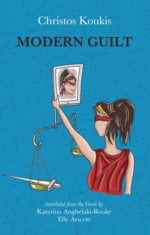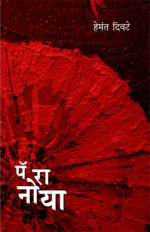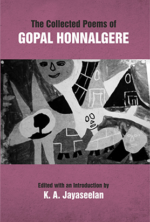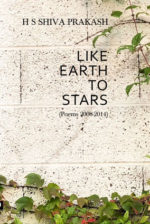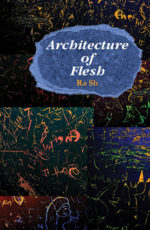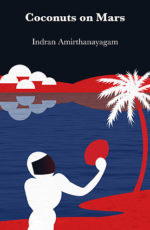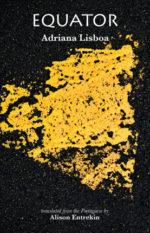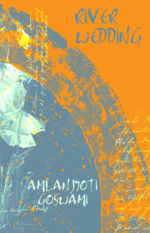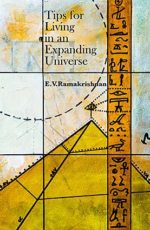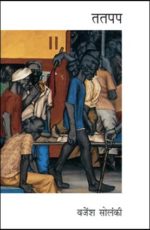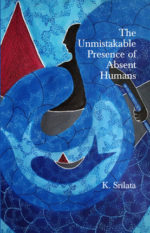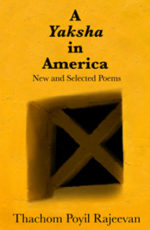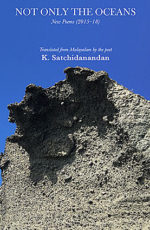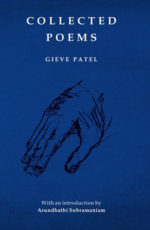-
-
CALLING OVER WATER
$16About the Book
Praise for Priya’s Poetry:
Written over a decade, Calling Over Water features poems in three movements. The first trails a wake of lacunae and dislocation but also remembrance and gratitude for departed loved ones. Next, the tempo shifts as the mind sifts through dazzlement, disappointments, riddles and resolutions. Poetry making and identity are explored and mapped. In the last movement, geographies of space and time are located through art, history and the act of journeying. The self is in part reconstituted and returned as a retuned being. “Are you recyclable?” “Why does art leap out of the window when there’s no terrorist attack, only collapse?” “What if you stop smelling of loathing?” These are some of the brave and probing questions Priya Sarukkai Chabria poses in Calling Over Water.
-
Modern Guilt
$2About the Book
A sense of evening pervades Christos Koukis’ Modern Guilt, translated into English by Katerina Anghelaki-Rooke and Elle Arscott. This twilight is historical, ridden by the background of the financial crisis in Greece, as much as poetic, where ‘we are rich in such a way that no bank condescends to accept us’. But like all things Greek, there is the sun, which peeks at odd places and throws light on hidden corners. In Koukis’ world, the sun glints, before setting at nine o’clock behind the Acropolis, even if ‘deep down, the light makes things difficult’.
It is in this sense that Modern Guilt holds a mirror to us, our anxieties and vanities. The earthquakes in Modern Guilt are political. History is ugly and ‘the country does not go to sleep with clear conscience’. Continuing in the tradition of the modern Greek masters, Koukis has use for antiquity, but this antiquity is not removed from history, its pain and betrayal. It provides no respite, only hard lessons. The financial earthquake of Greece is but one more link in that story.
Yet in its moments of crises, hope shines through —‘there is a feeling of life that never abandons us, an honest victory’. There is redemption in love and in the hope of love. Amidst the shadows, for Koukis it ultimately ‘doesn’t matter’, for even ‘Dresden was rebuilt and now it shines’.
-Amlanjyoti Goswami
-
Shorelines
$14About the Book
In his poem ‘Sailing to Byzantium’, W.B.Yeats sees himself transformed into a golden bird after his death. The bird is meant to entertain the city’s lords and ladies by singing of ‘what’s past, or passing, or to come.’ In the real and imaginary Byzantiums we inhabit today, Adil Jussawalla’s poems have a similar purpose – to tell, foretell, and uncover the ravaged face of the present.
‘He’s there on that street, making sounds that belong
to lands nobody knows, not in this world,
past sailing, past understanding.’
– from Jussawalla’s poem ‘Navigation Marks’
Be afraid. Be very afraid.
– Jerry Pinto
These lines by Jussawalla—with their images of the maritime, the mortal, and the beyond— drop anchors that stun as they fall through hulls and remembrance. There is a sense of being at once behind the helm of The Flying Dutchman, and trying to find sea-legs.
This homage to a city, where tarpaulin allies with sky and weather, is rich in puns
(“Faults not our own”-The Earthquake) and absurdity (“This number does not exist./ This port does not exist./ They should have told you.”).
Shorelines is a treasure as immeasurable as its shipwrecks’.
–Arjun Rajendran -
The Collected poems of Gopal Honnalgere
$30About the Book
‘Thank God all men need not drink water from the same source’: this line from one of Gopal Honnalgere’s poems collected here is perhaps the most suggestive comment that can be made on these poems as they draw their ‘water’ from sources seldom used in the Indian poems in English we are generally familiar with. An act of retrieval as well as of love, this collection lights up an ill-lit by-lane seldom taken by the urbanised Indian poets in English : the Zen of the Everyday and the Small: objects, insects, people, relationships. I read these in Malayalam where they were quite at home and so they will be, in any Indian language.
K. Satchidanandan
-
Like Earth to Stars
$20About the Book
When Shivaprakash (b.1954) entered the arena of Kannada poetry in the ’70s, Kannada modernism had already exhausted its possibilities. Those disenchanted with the modernist introversion spearheaded a new trend called Dalit-Bandaya movement. Critical of both modernist self-consciousness as well as the loud politics of rebel writers, Shivaprakash forged his own poetic idiom, at once sensuous and spiritual, political and philosophical, inspired by the regional folk and Bhakti traditions of poetry. He moved away from the monologic and didactic modes of contemporary Kannada poetry to pioneer a new dialogic-mode in which personal and social concerns enter into debate with a multiplicity of Indian cultural traditions. His more recent poems of the last couple of decades written in different parts of the world have broadened the essentially dialogic nature of his poetry, engaging in wide-ranging debates with other cultures and civilisations without sacrificing his rootedness in his own Kannada-specificity. Currently Professor of Theatre Studies in Jawaharlal Nehru University, New Delhi, Shivaprakash is also an eminent playwright and translator. He has held several important administrative positions in the past including Editor, Indian Literature, and Director, Nehru Centre, Berlin. His works have been translated into various Indian and foreign languages including Spanish, Italian, Romanian, Lithuanian, German and Arabic and won him many prestigious awards in India including the Sahitya Akademi and Sangeet Natak Akademi awards. He is Honorary Fellow, School of Letters at the University of Iowa, USA. Shivaprakash’s major interests include yoga, tantra and other Indian spiritual traditions as reflected in two English books, Everyday Yogi and Guru: Ten Doors to Ancient Wisdom.
-
Architecture of Flesh
$12About the Book
Ra Sh’s poems stand out in the world of Indian poetry in English because of their uniqueness in attitude and style. He has an eye for apt metaphors and ample adjectives that articulate the semantics of violence that have come to define our times: political, patriarchal and communal. The intensity of his concern perfectly matches the sharpness of his images. It is no wonder that his poems often seem like a ritual procession of self-flagellating devotees of a heartless god doling out selected torments or like aesthetic lessons in the anatomy of gore exposing the visceral asymmetries of existential angst. And during all the painful coitus, his poetry sings, yes, sings in many stabbing tongues invoking conversations in blood.
– K. Satchidanandan -
Coconuts on Mars
$12About the Book
Indran Amirthanayagam has been writing poems that will outlive his time, and they have been translated already into several world languages. These new poems both look bravely into the future as they turn back, at the same time, to the remembered mists of his childhood. Indran embraces various contradictions in his capacious heart and mind, that have enabled him to love in many languages, to cross all sorts of borders, geographic, linguistic, and political, and to champion liberty of expression wherever he goes. Indran?s is a journey beyond limits, and these poems take you much of the way along with him on his restless exploration of his multiple worlds.
-Shashi Tharoor -
Cosmopolitician
$16About the Book
‘In his latest book Cosmopolitician, Mustansir Dalvi counters the outside world with poems seldom seen in the work of other poets. In seven sections; poems dealing with the larger scheme of life are conveyed in weighted words that are prevented from sinking by the structure and content into which they are placed. He is able to explore a wide range of styles and emotions that carry the reader away. And, as deep into the personal world as literature can take us: :My name is mud, / gold runs in my veins, grouting an imperfect dam that holds.”‘
– Jayanta Mahapatra, author of Sky Without Sky, A False Start and A Rain of Rites -
Equator
$12About the Book
Reading Adriana Lisboa’s poems one becomes aware that in the clear light of their precise articulations something secret is taking place. That “something / taking place in secret” can be as anguished as the poems are calm; as wild as the poems are poised. She dares ask any question and – even more courageously – dares answer (or accept that there is none). Poems that are tethered to terra firma can cut loose without warning; knowing can ambush you from anywhere. There are no dirty tricks in her work, no showy gestures. Instead, there is the animating intelligence of life lived acutely, on and through words, this impossible sustenance that poets seek, and only rarely – as in Lisboa’s case – find. In her able translator Alison Entrekin’s hands, Adriana Lisboa’s poetry offers an exhilarating oxygen, “freeing in the word / what the word seals in”.
Sampurna Chattarji, poetry editor of The Indian Quarterly
-
The Painter of Evenings
$20About the Book
Your poems are exceptional… My admiration grows for your poems – Jayanta Mahapatra.
Kottoor is a poet who has discovered his own voice distinct from that of his ancestors or his compeers. ? Dr Ayyappa Paniker
I earnestly believe that you are one of the most committed and ardent lovers of poetry. At my age (92), I would like to say—God bless you! With deep affection and admiration. – Shiv K Kumar
Gopikrishnan Kottoor is one of the most exciting voices of the 90?s.- Chandrabhaga
Thoroughly localized, yet universal. ? The Quest
-
River Wedding
$16About the Book
The hundred pages of this collection give scope enough to show the generosity of Amlanjyoti Goswami’s perception of the world. This is both intimate and ambitious, paying attention to the gentle nuances of family life without losing sight of the disturbing ways that history unfolds. Moments of revelatory strangeness are often entered through a child’s viewpoint – ‘sunlight talks to Zenzi…’ – but the effect never sentimental. The whole collection could be dedicated, in the delicate wording of a poem simply titled Lunch: ‘To life, more life. // The kind that,like a child, / takes in a morsel, when nobody’s looking.’ The deeper messages speak quietly, but all the more convincingly for that, and the points of arrival are not grand visions but ‘a fine ordinariness’. What renders this quality fine is Goswami’s sure and economical way with language – ‘we wear the dusk of sorry news’, or the blind flautist’s sensation of ‘the grain in the wood, the press and leave / of my fingers’. There is no postcolonial uncertainty in this marrying of Indian perspectives and the English language, whose literary heritage is graciously acknowledged, with nods to Soyinka and Achebe, to Walcott and even (with a healthily wry smile) to Matthew Arnold when he turns up in a second-hand bookstall in Chandni Chowk. Rather, there is a generous welcome to the world – with the freshness of an outsider’s view sometimes, but always with a sense of hospitality. -Philip Gross
-
Tips for Living in an Expanding Universe
$12About the Book
E. V. Ramakrishnan’s unique voice has reached another level of intensity in this new book of poems. He does not hark back to lost utopias or invoke dystopias. His poetry rips apart language to reach down to the palpable truth of experience. It aims at nothing short of the impossible: to hold together the ever expanding universe in an epiphany of the immediate.
-H.S. ShivaprakashE. V. Ramakrishnan?s poems spin across metaphor and statement with fluid ease, often veering at the edge of axiom. There is an ability to combine elegy and irony, image and indictment, to blur the distinction between the mundane and the make-believe while never losing the sharp knife-blade of moral concern.
-Arundhathi Subramaniam -
-
The Unmistakable Presence of Absent Humans
$16About the Books
In a world of loss and absences, K. Srilata’s concerns go beyond the personal into larger issues of disappearing languages and people in conflict-ridden zones. Her sensitive eye for detail, the unexpected images and her use of language that can be both sharp and delicate, make these poems memorable. – Menka Shivdasani, Indian poet
K Srilata, in writing this important collection, has given voice to all who struggle to find meaning, who wonder endlessly what that other reality might be – the one that lies just beyond our reach, just beyond the picture frame. Her writing invites us to see the unanswered questions as doorways back into our lives. I love Srilata’s book, her light touch, her true poetic-voice, and her ability to catch a poem on the wing and transmit it to her willing and excited reader. – Murray, Poet and editor of Poethead
-
A Yaksha in America
$16About the Book
Hebrew poet, translator and Editor-in-Chief, Helicon series of poetry
The strength of Thachom Poyil Rajeevan’s poetry is rooted in the authentic evocation of the South Indian landscape of Kerala, especially his ability to do so with acute detail and clarity. We can smell, feel, and participate fully in the world he paints with his words. The inherent overlaying of the Malayalam and English tongues adds a subtle, but an important linguistic texture to his poetry. A welcome addition to contemporary English poetry in India.
-Sudeep Sen
Poetry Magazine -
NOT ONLY THE OCEANS
$12About the Book
Not Only The Oceans carries twenty five poems, including along sequence composed by K. Satchidanandan during 2015-2017. The first six poems were written in Shimla where he spent an year as an invited National Fellow at the Indian Institute of Advanced Studies and carry the stamp of those hills with their touch of mystery as also the deep meditative experience of solitude the poet had while being there. The collection also carries a sequence of poems on Spain that he visited in 2015 as a poet invited to read in many cities including Madrid and take part in a workshop where his poems were translated into Spanish. The rest of the poems reflect his abiding concerns: love, death, war, violence and human dignity constantly violated by the inhuman State as well as the civil society with its outdated norms and values.
-
Collected Poems
$16About the Book
” … a poet who has been a quietly enduring presence in the country’s literary scene for five decades … ” “It was my first realization that a gaze unclouded by sentiment could evoke something truer than sympathy. That an unspoken poignancy could lie in the act of not averting one’s gaze. That poetry could lie in a simple unblinking intensity of attention.”



